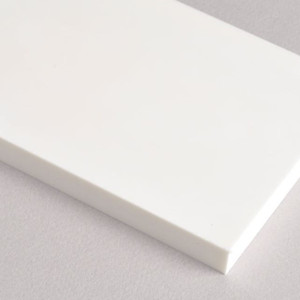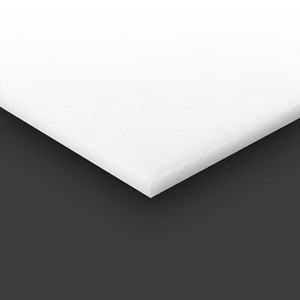High-density polyethylene (HDPE)
High-Density Polyethylene (HDPE) Sheets & Rods
Laird Plastics offers chemical-resistant, food-safe HDPE for industrial, marine, food processing, and machining applications. Our HDPE is easy to fabricate and ideal for cutting boards, wear strips, packaging components, and molded parts. Cut-to-size and custom fabrication available.
HDPE Cutting Board Material
FDA-compliant, non-porous HDPE sheets in color-coded options. Used for food prep surfaces, conveyor guides, and hygienic wall liners.
Machine / Wear Strips & Structural Parts
Thicker HDPE grades for guides, chute liners, sprockets, and structural parts. Excellent impact resistance and fatigue life in industrial settings.
CNC Machined & Fabricated HDPE
Laird Plastics provides cut-to-size, CNC machining, heat bending, and assembly for HDPE parts—plates, bushings, spacers—for industrial and custom applications.
HDPE Rods & Tubes
Solid HDPE rods and hollow tubes for bearings, rollers, seals, or custom structural assemblies. Available in various diameters and lengths.
HDPE at a Glance — Quick Facts
| Chemical Resistance | Excellent—resists acids, caustics, and solvents |
|---|---|
| Moisture Absorption | Nearly zero water absorption, ideal for marine and damp environments |
| Machinability | Easy to condition, rout, drill, turn, or weld |
| Impact Strength | High—ideal for high-wear and impact applications |
| Temperature Range | Usable from –40 °C to ~80 °C (application-dependent) |
| Food Safety | Food-grade options available; confirm certification per SKU |
HDPE vs Other Plastics
- HDPE vs UHMW: HDPE is stiffer and easier to fabricate; UHMW offers lower friction and higher wear resistance.
- HDPE vs PVC: HDPE has better chemical resistance and is food-safe; PVC is more rigid and recyclable in many regions.
Best Uses by Application
- Cutting boards & food-contact: HDPE sheets, color-coded, smooth surface.
- Structural/wear parts: Thicker HDPE for high durability components.
- Custom parts: CNC, heat-bend, or assembly-ready fabricated HDPE.
- Rollers & seals: HDPE rods and tubes offer low friction and chemical resilience.
HDPE Plastics – FAQs
Is HDPE food-safe?
Yes. Food-grade HDPE sheets meet FDA requirements. Confirm certification for your intended use.
What solvents can HDPE resist?
HDPE resists alcohols, mild acids/bases, and oils. Strong oxidizers may degrade it; always check a chemical compatibility chart.
Can HDPE be machined and welded?
Yes. HDPE routes, drills, turns, and heat-welds cleanly with minimal spoil and easy edge finishing.
What is the temperature range for HDPE?
Typically from –40 °C to ~80 °C depending on grade; consult manufacturer specs for high-temperature applications.
Do you offer cut-to-size and custom parts?
Yes. Laird Plastics offers cut, CNC machining, rod/tube lengths, and fabricated parts. Contact us for a quote.
Need HDPE Sheets or Parts Cut to Your Spec?
Let Laird Plastics help you select the right grade of HDPE and deliver cut-to-size or CNC machined parts for industrial, food service, or custom uses.



